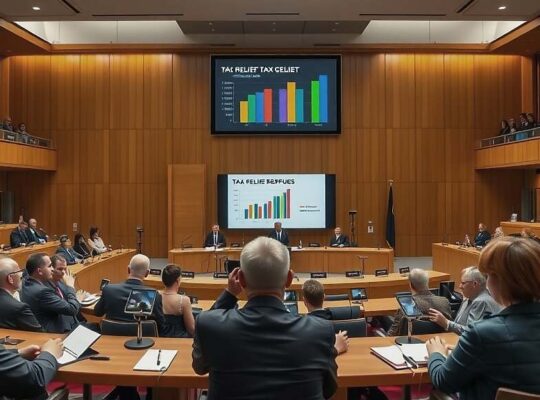Government bodies across Germany – federal, state and municipal – are now projected to collect significantly higher tax revenues than previously estimated earlier this year, according to a revised assessment released Thursday by Finance Minister Lars Klingbeil (SPD). The updated projections indicate a consistently more favorable fiscal outlook for all years within the forecasting period, surpassing the estimates made in May by an average of a mid-single-digit billion euro sum annually.
Initial reports suggesting a potential windfall of approximately €100 billion have proven to be overly optimistic, though the revised figures still represent a substantial increase. Specifically, revenue expectations for 2025 are now exceeding the previous estimate by €11 billion, with an additional €22.6 billion projected for the years 2026 to 2029 taken together. The benefits of this improved revenue flow are disproportionately channeled to state and local governments, while the federal government anticipates lower tax income starting in 2028 – a divergence highlighting the impact of fiscal distribution policies.
Klingbeil attributed the positive development to the government’s investment package, claiming it has provided “a strong impulse for new economic growth”. He emphasized that this bolstered revenue stream primarily strengthens the fiscal capacity of Länder and municipalities. However, this positive feedback loop is somewhat tempered for the federal government, which bears the brunt of the costs associated with the economic stimulus measures. Klingbeil defended the policy, reiterating the government’s focus on securing jobs and fostering future employment opportunities within Germany.
Despite the overall optimistic forecast, Klingbeil cautioned that pressure to consolidate the federal budget remains intense. Significant budget gaps anticipated from 2027 necessitate a continued “strict consolidation course” demanding austerity measures across all government ministries. The Minister also signaled upcoming reforms designed to enhance economic competitiveness and reduce bureaucratic hurdles – a tacit acknowledgement of ongoing concerns regarding Germany’s long-term economic viability. The divergence in revenue distribution, coupled with the ongoing consolidation demands, are sure to fuel debate regarding the sustainability of current fiscal policies and the equitable sharing of Germany’s economic gains.












